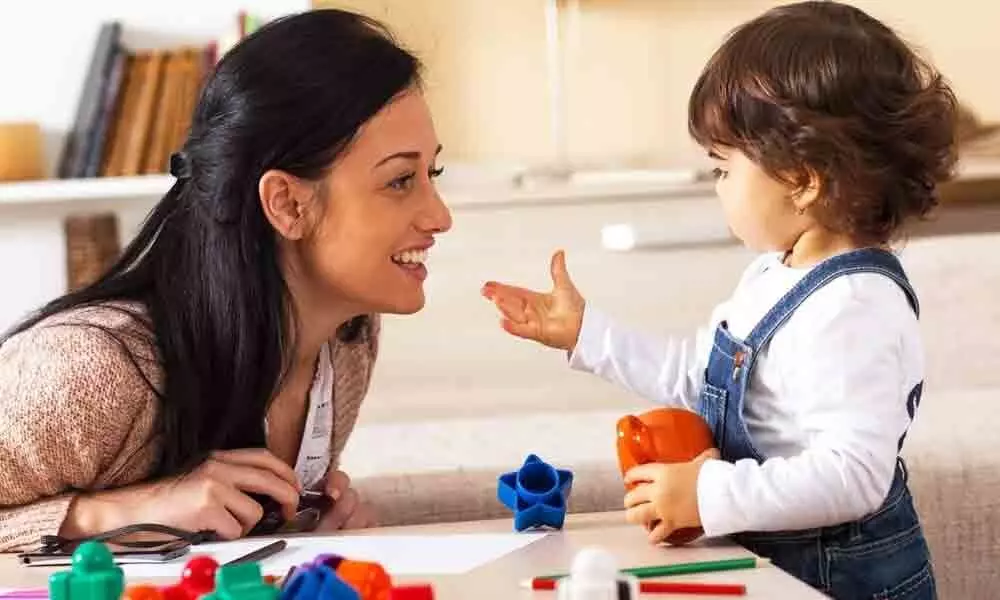Groom your children to caring, ethical adults

We should work to cultivate children’s concern for others because it’s fundamentally the right thing to do, and also because when children can empathise with and take responsibility for others, they’re likely to be happier and more successful
Research in human development clearly shows that the seeds of empathy, caring, and compassion are present from early in life, but that to become caring, ethical people, children need adults to help them at every stage of childhood to nurture these seeds into full development.
We should work to cultivate children's concern for others because it's fundamentally the right thing to do, and also because when children can empathise with and take responsibility for others, they're likely to be happier and more successful. They'll have better relationships their entire lives, and strong relationships are a key ingredient of happiness.
In today's workplace, success often depends on collaborating effectively with others, and children who are empathic and socially aware are also better collaborators.
Below are a set of guideposts to raising caring, respectful, and ethical children, along with tips for putting them into action:
Work to develop caring, loving relationships with your kids Children learn caring and respect when they are treated that way.
When our children feel loved, they also become attached to us. That attachment makes them more receptive to our values and teaching.
Loving our children takes many forms, such as tending to their physical and emotional needs, providing a stable and secure family environment, showing affection, respecting their individual personalities, taking a genuine interest in their lives, talking about things that matter, and affirming their efforts and achievements.
Be a strong moral role model and mentor
Children learn ethical values and behaviors by watching our actions and the actions of other adults they respect. Children will listen to our teaching when we walk the talk.
Pay close attention to whether you are practicing honesty, fairness, and caring yourself and modeling skills like solving conflicts peacefully and managing anger and other difficult emotions effectively. But, nobody is perfect all the time.
That is why it's important for us, in fact, to model for children humility, self-awareness, and honesty by acknowledging and working on our mistakes and flaws. It's also important for us to recognise what might be getting in the way of our own caring.
Are we, for example, exhausted or stressed? Does our child push our buttons in a specific way that makes caring for her or him hard at times? And remember, children will only want to become like us if they trust and respect us.
Adults can reflect on whether our children respect us and, if we think they don't, consider why, and how we might repair the relationship.
Make caring for others a priority and set high ethical expectations
It's very important that children hear from their parents and caretakers that caring about others is a top priority and that it is just as important as their own happiness.
Even though most parents and caretakers say that their children being caring is a top priority, often children aren't hearing that message.
A big part of prioritising caring is holding children to high ethical expectations, such as honoring their commitments, doing the right thing even when it is hard, standing up for important principles of fairness and justice, and insisting that they're respectful, even if it makes them unhappy and even if their peers or others aren't behaving that way.
Provide opportunities for children to practice caring and gratitude
Children need practice caring for others and being grateful—it's important for them to express appreciation for the many people who contribute to their lives.
Learning to be grateful and caring is in certain respects like learning to play a sport or an instrument. Daily repetition—whether it's helping a friend with homework, pitching in around the house, having a classroom job, or routinely reflecting on what we appreciate about others—and increasing challenges make caring and gratitude second nature and develop children's care giving capacities.
Hold family meetings that give children practice helping to solve family problems such as squabbles between siblings, hassles getting off to school, and making meals more pleasant.
Although as parents and caretakers we always need to stand firmly behind key values such as caring and fairness, we can make our home democratic in key respects, asking our children to express their views while they listen to ours.
Expand your child's circle of concern
Almost all children empathise with and care about a small circle of families and friends. Our challenge is help children learn to have empathy and care about someone outside that circle, such as a new child in class, someone who doesn't speak their language, the school custodian, or someone who lives in a distant country.
It is important that children learn to zoom in, listening closely and attending to those in their immediate circle, and to zoom out, taking in the big picture and considering the range of people they interact with every day.
Children also need to consider how their decisions impact a community. Breaking a school rule, for example, can make it easier for others to break rules.
Especially in our more global world, it's important, too, for children to develop concern for people who live in other cultures and communities.
Help children develop self-control and manage feelings effectively
Often the ability to care for others is overwhelmed by anger, shame, envy, or other negative feelings.
We can teach children that all feelings are ok, but some ways of dealing with them are not useful. Children need our help learning to cope with feelings in productive ways.








